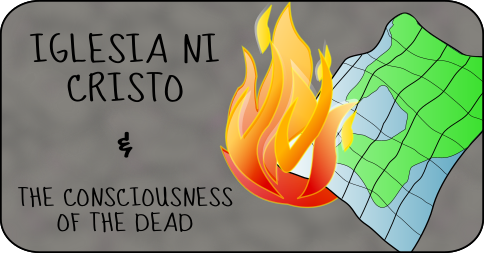Does Psalm 146:4 teach that the dead are unconscious?

The "Iglesia Ni Cristo" teaches that the dead are unconscious as they await judgment. INC members often point to Psalm 146:4 in order to demonstrate that the dead are not conscious. Is this a valid use of the verse?
Psalm 146:4 (ESV) - When his breath departs, he returns to the earth;
on that very day his plans perish.
When we examine this verse and its surrounding context, we see that it does not teach that the dead are not conscious.
The word often translated as "thought" does not refer to consciousness.
Some translations read "his thoughts perish" while many modern translations say "his plans perish". The INC argument assumes that this word refers to consciousness. We can see in other uses of this word that it refers to plan and intent rather than consciousness.
This word, "eshtonah", is a hapax legomenon, meaning that it only appears once in the Bible. However, we see this word used in the Apocrypha to speak of one's plans:
Sirach 3:24 (KJV) - For many are deceived by their own vain opinion; and an evil suspicion hath overthrown their judgment.
Additionally, we see that Psalm 146:4 is translated in the Septuagint (an early Greek translation of the Old Testament) as "dialogismos". See how this word is also used in the Bible:
Luke 9:47 (ESV) - 47 But Jesus, knowing the reasoning of their hearts, took a child and put him by his side
This is not illustrating that Jesus knew that children are conscious. It is obvious that children are conscious and it does not take someone as unique as the Son of God to have such knowledge. Instead, this verse is illustrating that Jesus understands the intents of children. The fact that the translators of the Septuagint chose this word demonstrates they understand the Hebrew word in Psalm 146:4 as encompassing a scope that does not necessarily refer to consciousness but speaks of plans and intents.
This verse only speaks of earthly things.
Let us look at each phrase of the verse:
"When his breath departs," - What breath does the author speak of? He speaks of the man's earthly breath.
"he returns to the earth;" - What returns to the earth? The man's earthly body returns to the earth.
"on that very day his plans perish." - What plans perish? It is only consistent to understand this as referring to earthly plans. The psalmist speaks of the earthly state of a man and does not intend to speak beyond this.
The context dictates that this verse speaks of intents instead of consciousness.
The previous verse reads:
Psalm 146:3 (ESV) - Put not your trust in princes,
in a son of man, in whom there is no salvation.
Why is it that we should not put our trust in men? It is because they die and any plan they had dies with them. This speaks of the false salvation promised by men. No mere human can offer salvation or have a plan of salvation, because when they die, that plan dies with them.
Conclusion
Psalm 146:4 does not teach that the dead are not conscious. It teaches that we shouldn't place our trust in mere men. The INC misuses this verse in order to propagate their erroneous teachings on the state of the dead.
